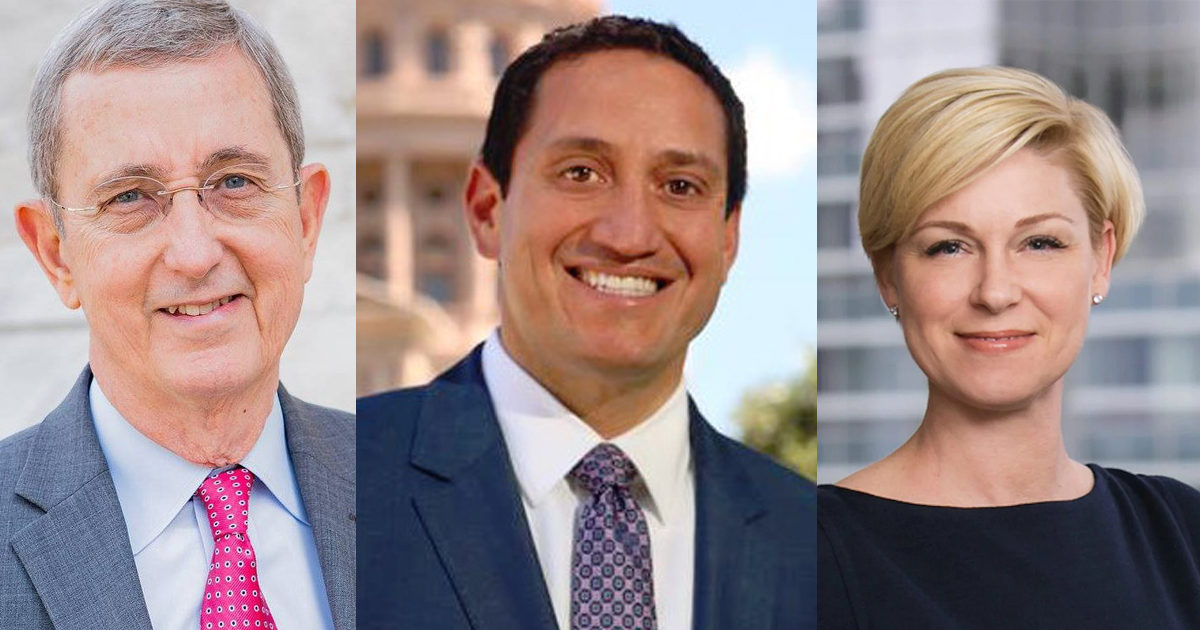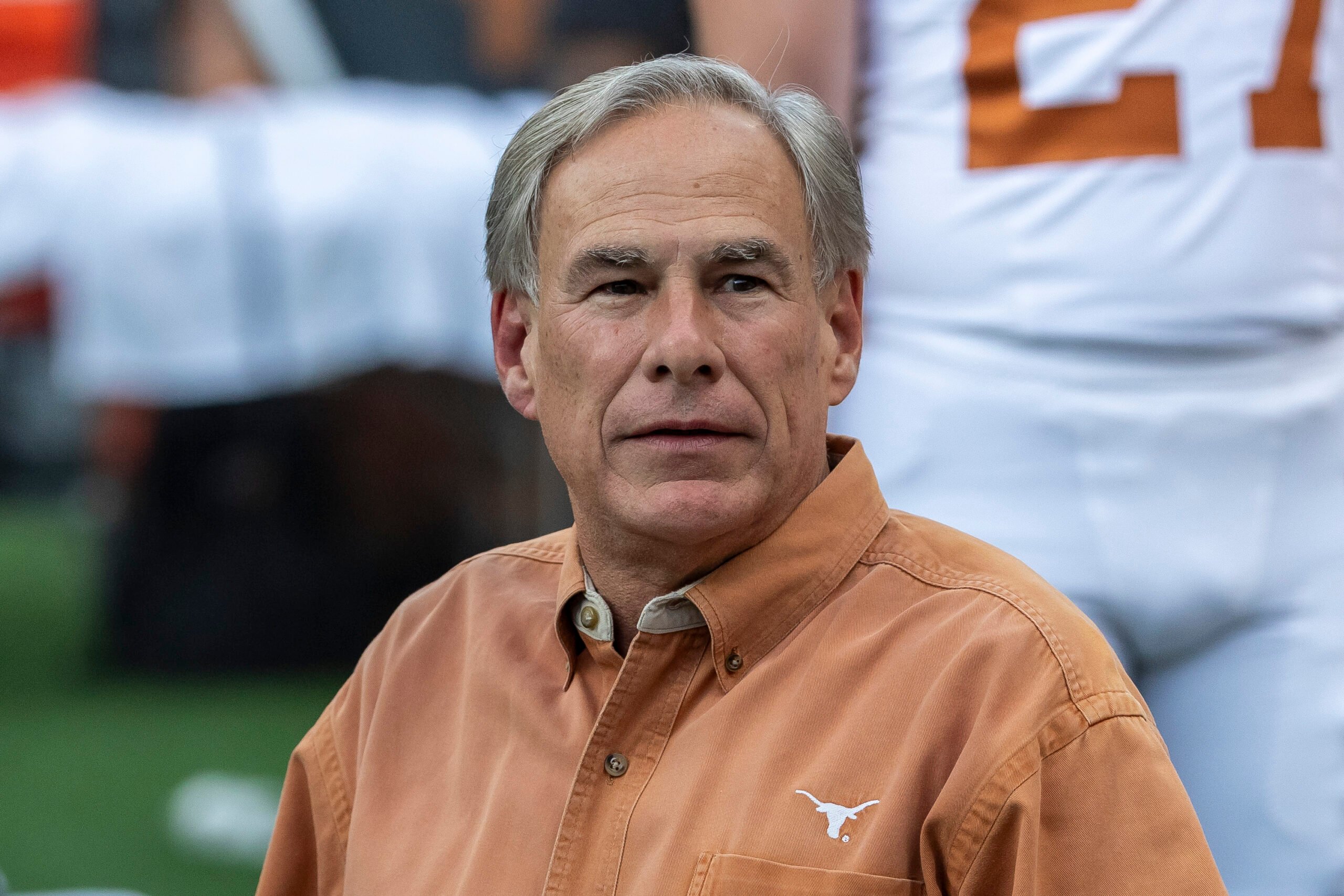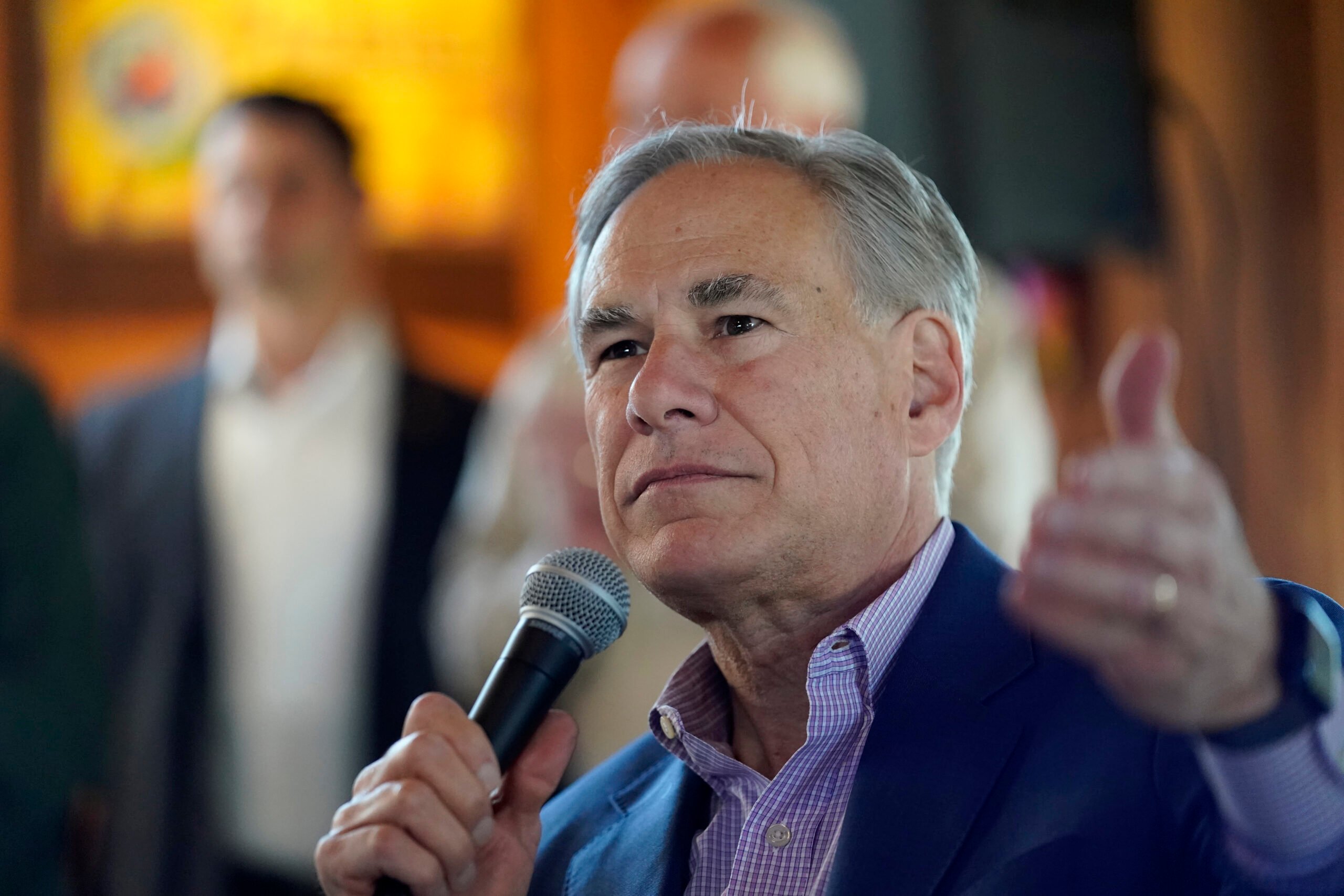
Four Things to Watch as Election 2018 Gets Underway in Texas
Above all, this is a time for nutty, weird politics.

Above: Former Land Commissioner Jerry Patterson, former state Representative Trey Martinez Fischer, State Representative Sarah Davis
We have extremely bad news for you: It’s election season again. It has been a year filled with too much Politics, but more is coming, and will keep coming, ad infinitum, until the sun swallows the earth. Monday was the official candidate filing deadline for the state’s March 6 primary, which will likely be followed by run-offs in May. That means the next five months will be a period of frenzied political activity that will have as much to say about how the state is run as the subsequent general election.
It ought to be a good year for Texas Democrats, and there are encouraging signs for long-suffering progressives. But it’s also, like every election season, a time when the Texas Democratic Party’s structural weaknesses are evident. Even in this time of growing backlash against Trump and the GOP, in Texas the most fiery and consequential developments are likely to happen among Republicans, as the party’s internal civil war keeps slowly churning. Above all, this is a time for nutty, weird politics. Recent primary fights have starred punching, knives, Sun Tzu, Gay Hitler, gay baiting, domestic abuse, psychiatric wards, racist mailers, Lyndon LaRouche and Capitol parking garage sex. As we tumble head-first into another wild election season, here are a few things to keep an eye on.
1) The national surge in progressive enthusiasm that followed Trump’s election is manifesting in Texas in a big way. In the last two election cycles, Democrats fielded candidates for about 90 of 150 state House seats. That’s realistic — only a handful of seats are normally competitive — but conceding more than a third of the Legislature to the GOP is harmful. This year, the Texas Democratic Party says it has candidates running in 133 districts. That’s a big improvement, and it represents a potentially significant opportunity if a wave election reaches Texas.

More high-quality candidates, spread across the field, gives Democrats a shot at scoring a few more seats in the House, which is extra important this year. The next legislative session, in 2019, will feature a speaker’s race that could determine whether relative moderates retain any power in state government. But more than that, it means new faces in places Dems don’t usually show up. This year’s crop includes candidates like 24-year-old Spencer Bounds, of Midland, running against forever lawmaker Tom Craddick, the dean of the House, who was first elected to office in 1968. The party needs people like Bounds in a big way, and quite a few of them will be putting in work this year.
Does the infrastructure exist to get these 133 candidates the help and support they need — of the kind that helped flip so many surprise seats in the shock Virginia House of Delegates elections earlier this year? Hell no. In election after election, the state party has failed to do more than direct resources to a handful of competitive state House races, often leaving viable candidates to fend for themselves in races that are decided by mere thousands of votes.
The reality is that many of the candidates in 2018 will be running more or less on their own.
One caveat: The flood of national money into congressional races around Texas will help make up for some of that. A tremendous amount will be spent in DFW and Houston as a result of open or competitive congressional seats, and the hope is that it trickles down.
2) The Democrats’ big guns, like the brothers from San Antonio you may have heard of, have all stayed away from statewide races. It’s unsurprising that the gubernatorial candidates are weak, because Governor Greg Abbott is relatively popular and has a mountain of cash. But the party’s talent, as it were, is missing from the rest of the statewide ballot. The likely candidate for lieutenant governor, who controls the Texas Senate, is Mike Collier, who ran for comptroller last time. He’s a nice guy with little experience in politics and none whatsoever with the Legislature.

Contenders in other races, from attorney general to railroad commissioner, are also fine people whose defining feature is a lack of experience. They may prove strong candidates in time, but it’s not the kind of dream team you’d put together to tackle Republicans in a good year.
The big names are all cautious, maybe overly so, and it’s possible they’ll regret not jumping in come November. But it’s worth being clear about why they didn’t. Those with the most working knowledge about the party, the organizations, the donors and the polling came to a speedy conclusion that they didn’t have a punter’s chance of winning or even doing well in a way that would further their political prospects.
If you had to pick one symbol this year of the way the party’s experienced pols are stuck in a holding pattern, it would have to be former state Representative Trey Martinez Fischer’s decision to do another of his signature kamikaze bids, this time against state Representative Diana Arévalo. Arévalo replaced Fischer when he resigned to run for a Senate seat in San Antonio; Fischer was a very prominent name a few years ago, and everyone understood that he wanted to run for higher office. But he lost his first bid for that Senate seat, then lost a rematch and has been sitting out for a few years. Either he loses a pointless bid that may end his political career, or he wins, in which case the well-regarded Arévalo is knocked out for no reason.
3) The perennial drive to replace moderate Republicans with wackos has slowed, a bit, because there are so few moderate Republicans left. State Representative Byron Cook is retiring, probably to be replaced with the Fruitcake King of Corsicana, Thomas McNutt, an exchange which serves the state very poorly.
There will be some fireworks, though. State Senator Kel Seliger is about the last Republican in the Senate you could describe as a moderate, even though he’s not all that moderate. He faces two primary challengers, Victor Leal of Amarillo, a former board member of the Texas Public Policy Foundation, and Mike Canon, former mayor of Midland, who came within 5 percentage points of beating Seliger in 2014. If past is precedent, that race is gonna get real weird.
In the House, Bo French is once again primarying Charlie Geren, one of the last of the old Joe Straus Rs. French is an odd duck, most notable for his brutal, no-holds-barred legal battle with Chris Kyle’s widow, and one can’t imagine that plays well in DFW. (Geren won last time with 58 percent of the vote.) Then there’s ur-moderate Sarah Davis’ bid to hold her seat against the wacky Susanna Dokupil, a board member of Peter Thiel’s Seasteading Institute. As is tradition, these races and others like them will allow various Republican donors to piss away hundreds of thousands of dollars for unclear reasons and for no discernable gain other than the entertainment, and debasement by proxy, of the general public.

4) For raw entertainment value, though, look not to the Legislature but to the Republican statewide ballot. The headline bout of the entire primary season is the race you might least expect to hold anyone’s interest at all: The battle for the Republican nomination for Land Commissioner pits George P. Bush — the young scion of the Bush dynasty — against his immediate predecessor, the feisty libertarian coot Jerry Patterson.
There’s so much to unpack here that it should be a reality show. Patterson is one of the most colorful characters in recent Texas politics, a gun-loving ex-Marine pilot who dumped a metric ton of unusually venomous opposition research about Dan Patrick out of spite during the 2014 election. He has a little bit of Yosemite Sam in him. George P. is one of the least colorful figures ever to hold office in Texas. He’s a Bush, and that’s about it. He’d like to run for other offices someday, and the narrative he established about his tenure at the Land Office is that he rescued it from Patterson’s incompetent leadership.
That pissed off Jerry Patterson. Don’t piss off Jerry Patterson.
The race seems set to be run over an almost impossible to understand internecine conflict about George P.’s management of the Alamo, which is itself one of the weirdest stories in state politics in many years. This one’s gonna be an absolute mess.
Bonus Hogan: If you had uneasy dreams last night, filled with omens you find hard to decipher, let us put your mind at rest. Yes, Jim Hogan is back, this time in the Republican primary for agriculture commissioner. Cleburne’s most zen-like campaigner and all around good ol’ boy won the Democratic nomination for ag commissioner in 2014, but lost the general. He’s learned from his mistake — this time he’ll win the Republican nomination, and then the general, and then, maybe, run for president.
Correction: The original version of this story stated that Tom Craddick first ran for office in 1972. In fact, he was first elected in 1968. The article has been corrected. We apologize for the error.


